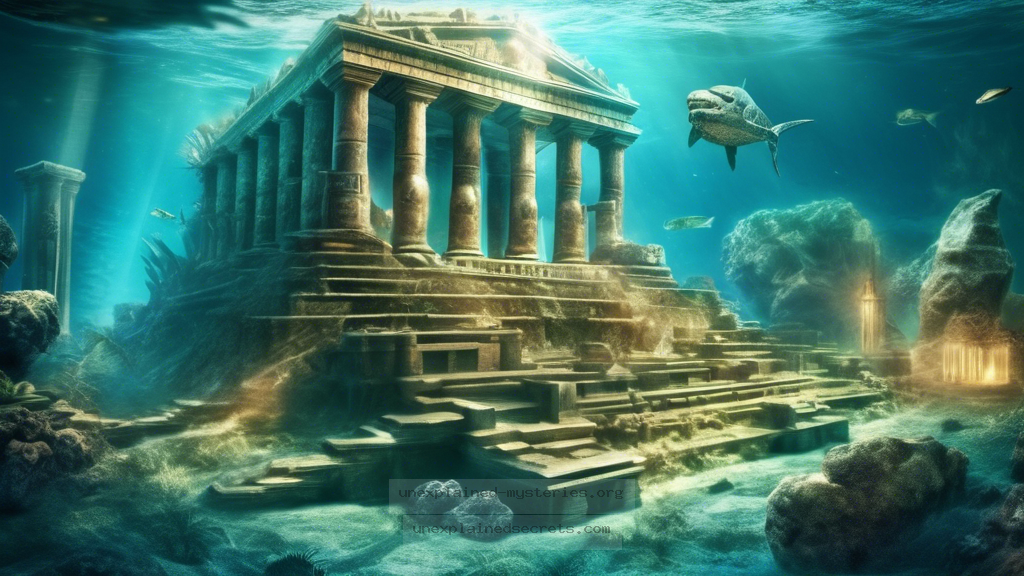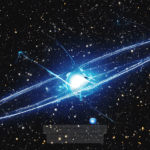What Happened to the Lost City of Atlantis? Unraveling the Mysteries Surrounding this Ancient Civilization
What Happened to the Lost City of Atlantis? Unraveling the Mysteries Surrounding this Ancient Civilization
The legend of Atlantis has captivated the minds of scholars, adventurers, and the curious alike for centuries. Described as a highly advanced civilization that mysteriously disappeared, the story of Atlantis raises critical questions about ancient societies, human progression, and the impact of natural disasters. This blog post delves into the various theories surrounding the existence of Atlantis, examining historical context, core concepts, and evidence while also exploring alternative perspectives and ongoing research.
Historical Context: The Origins of the Atlantis Legend
The tale of Atlantis first appears in the works of Plato, specifically in his dialogues “Timaeus” and “Critias,” written around 360 BCE. According to Plato, Atlantis was a large island located beyond the “Pillars of Hercules,” now known as the Strait of Gibraltar. This advanced civilization was said to be a powerful empire that fell out of favor with the gods due to its hubris and moral decline, ultimately leading to its catastrophic downfall. While some scholars argue that Atlantis was purely a myth intended to convey philosophical truths, others believe that it was based on real historical events and locations.
The Core Concepts: What Makes Atlantis So Intriguing?
The fascination with Atlantis can be attributed to several core concepts:
- Advanced Technology: The Atlanteans were purported to possess technological and architectural marvels far beyond their time, prompting inquiries into lost knowledge of ancient engineering.
- Geological Catastrophe: The narrative includes themes of cataclysmic events, leading to speculation about the relationship between natural disasters and the fate of ancient civilizations.
- Archetypes of Civilization: Atlantis serves as a metaphor for the rise and fall of societies, exploring themes of morality, power, and human ambition.
Practical Implications: Evidence for Atlantis’ Existence
Despite its mythical status, various pieces of evidence have been proposed to support the existence of Atlantis. These include geological formations, ancient maps, and archaeological discoveries that hint at advanced civilizations:
| Evidence Type | Description |
|---|---|
| Geological Evidence | Some researchers point to the existence of underwater ruins off the coast of Santorini and other Aegean islands as potential remnants of Atlantis. |
| Ancient Maps | Certain ancient maps, including the Piri Reis map, depict landmasses that could allude to Atlantis. |
| Archaeological Sites | Sites like Göbekli Tepe in Turkey and the Minoan civilization on Crete showcase advanced societal structures that could parallel Plato’s description. |
Alternative Perspectives: Debunking the Myth
While many are drawn to the possibility of Atlantis as a real place, a significant number of historians and archaeologists argue that it is purely a work of fiction. Some key points in this debate include:
- Plato’s Intent: Critics argue that Plato used the story to convey philosophical lessons about morality and governance rather than documenting a historical reality.
- Lack of Empirical Evidence: No definitive archaeological findings have been linked to Atlantis, leading many to dismiss it as a myth.
Common Misconceptions: Clarifying the Legend
Misunderstandings about Atlantis abound, often fueled by sensationalist literature and fringe theories. Some common misconceptions include:
- Atlantis as a Single Location: Many believe Atlantis refers to one specific place, but the term could represent various lost civilizations and cultures.
- Misinterpretation of Plato’s Texts: The dialogues may be misread or taken out of context, leading to distorted views of what Atlantis truly represents.
Best Practices for Investigation: How to Approach the Atlantis Mystery
For those intrigued by the Atlantis legend, an effective investigative approach involves:
- Critical Examination of Sources: Analyze Plato’s texts along with historical and archaeological evidence critically.
- Interdisciplinary Research: Engage with experts in various fields such as geology, archaeology, and anthropology to gather a well-rounded perspective.
- Open-Minded Skepticism: While remaining open to possibilities, maintain a healthy skepticism regarding pseudoscientific theories.
Future Developments: Current Research and Discoveries
As technology advances, new methods in archaeology and geology continue to shed light on ancient civilizations. For example, underwater exploration technologies like sonar mapping and robotics are uncovering submerged landscapes that could hold clues to lost civilizations, including Atlantis. Ongoing research projects in the Mediterranean and the Caribbean are also revealing new data about ancient societies that may have parallels to Plato’s account.
A Cultural Legacy: Atlantis in Popular Imagination
Beyond its historical and archaeological implications, Atlantis has become a cultural touchstone, inspiring countless works of fiction, from Jules Verne’s “The Mysterious Island” to Disney’s animated film “Atlantis: The Lost Empire.” This cultural legacy illustrates humanity’s fascination with the concept of lost worlds and the enduring quest for knowledge about our past.
Conclusion: The Enduring Mystery of Atlantis
The question of what happened to the lost city of Atlantis remains unresolved, inviting both skepticism and wonder. While definitive evidence for its existence is lacking, the themes surrounding the myth resonate deeply within our understanding of civilization, morality, and the consequences of hubris. As research continues and new discoveries emerge, the legend of Atlantis will undoubtedly remain a source of intrigue and exploration in both academic and popular culture.
Other Articles
Recent Posts
- What Happened to Flight MH370? The Conspiracy Theories That Still Haunt Us
- What Secrets Lurk Within the Walls of the Infamous Trans-Allegheny Lunatic Asylum?
- What Evidence Supports the Existence of Bigfoot in the Pacific Northwest?
- What Happened to the Indus Valley Civilization? Unraveling the Mysteries of Ancient Urban Life
- Can Telepathy Be Scientifically Proven Through Laboratory Evidence?







